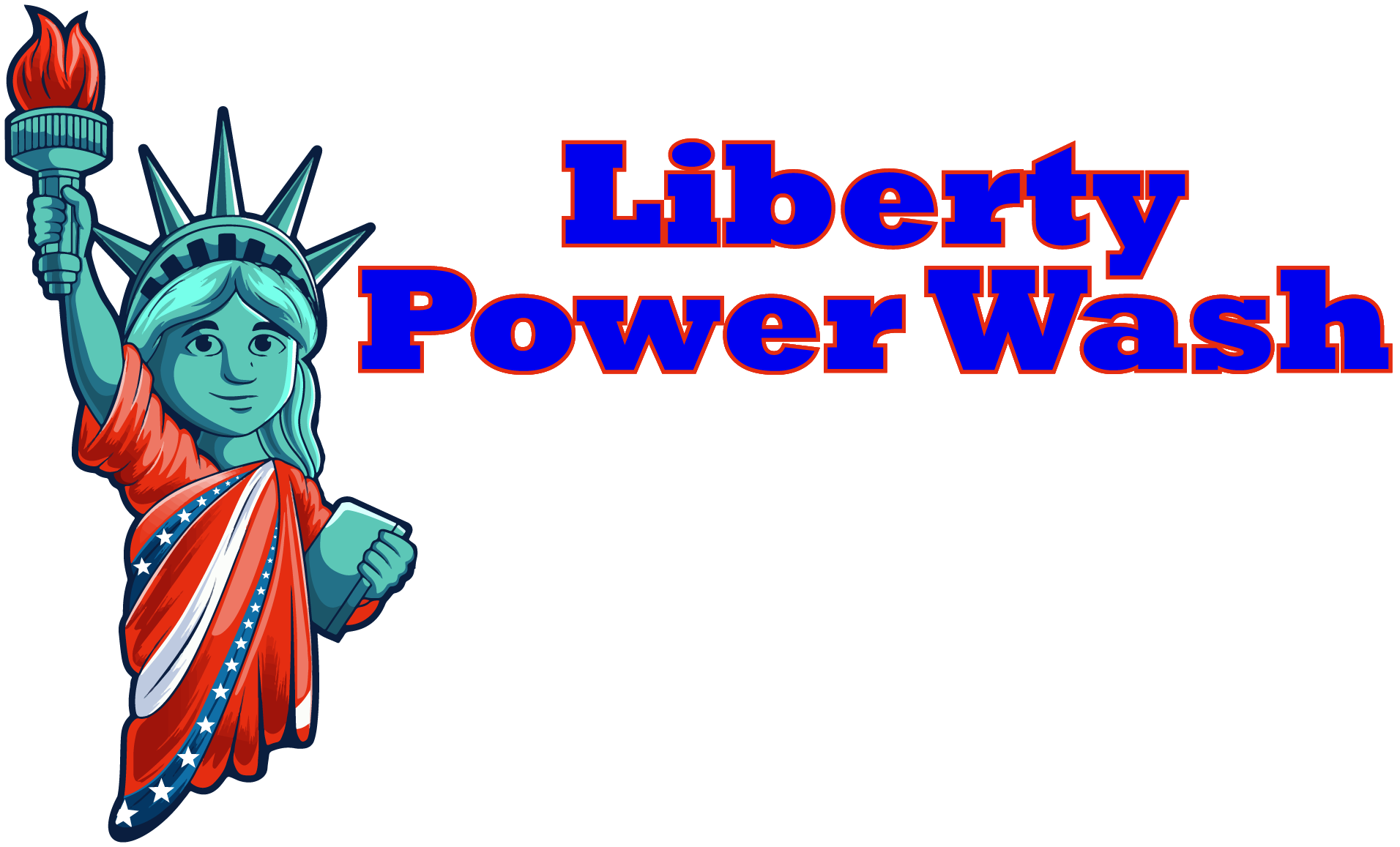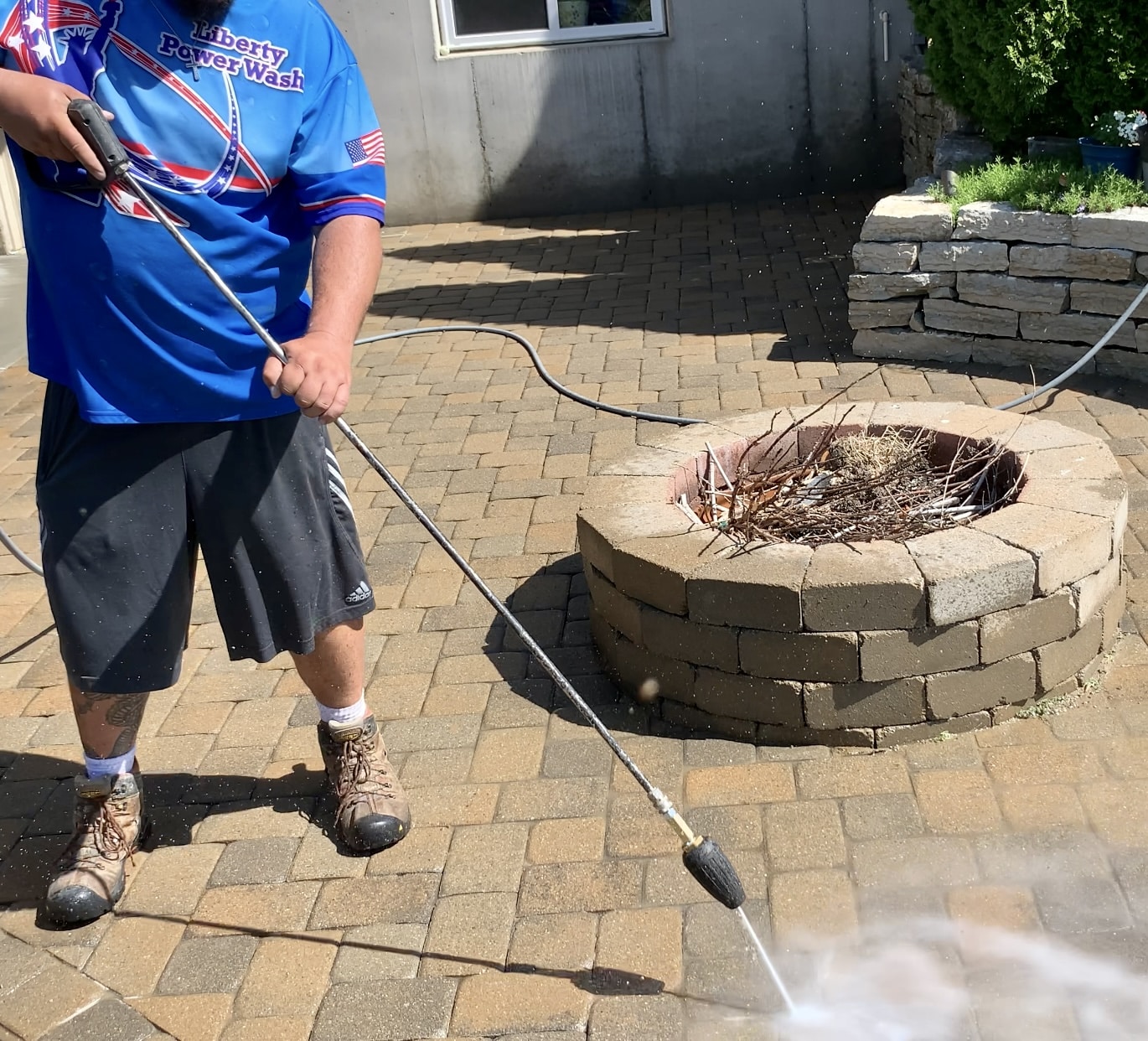When your home needs a thorough cleaning, it’s important to use the best tools available. That means knowing when to use pressure washing and when to use a soft wash, but what is the difference? If you want to avoid damaging your home while still giving it a quality clean, it’s crucial to get the two straight.
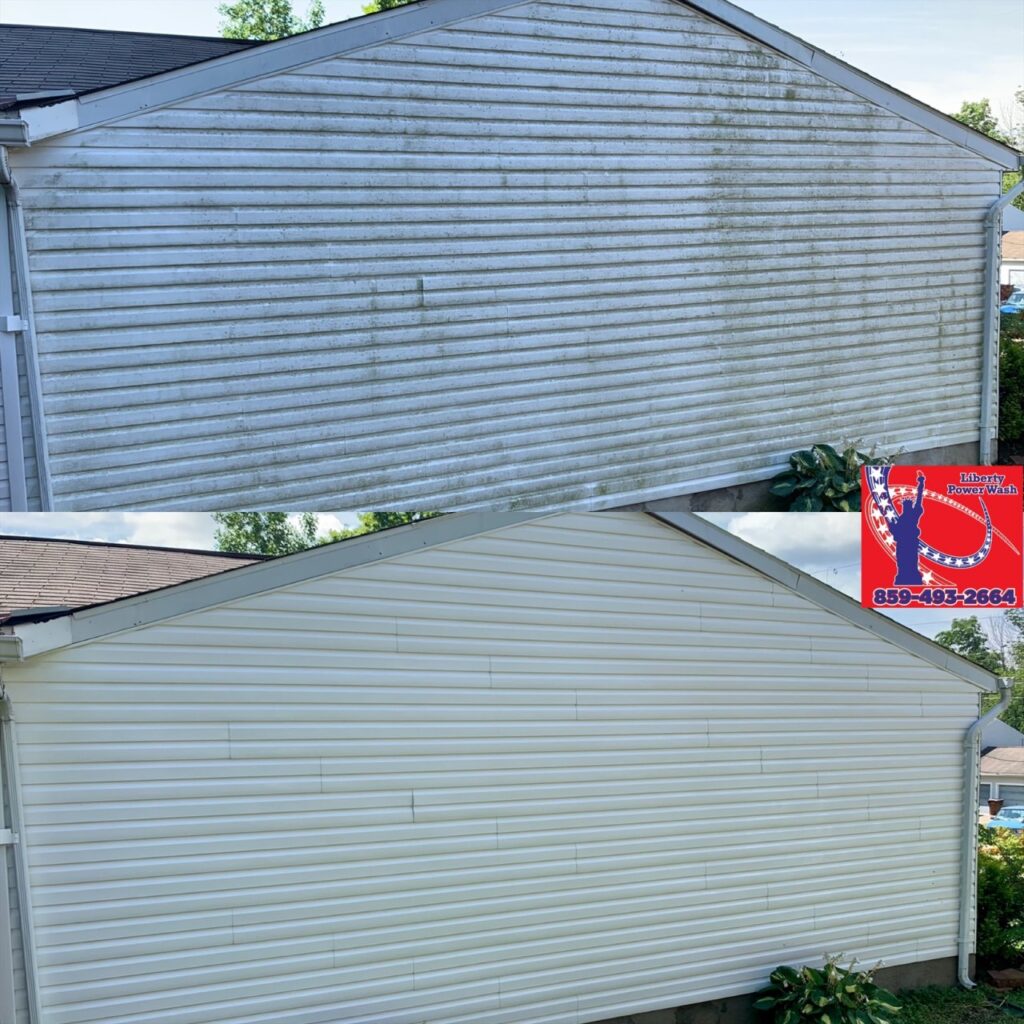
Soft Washing vs. Pressure Washing
Pressure washing and soft washing are both methods of using pressurized water and soap to clean. Pressure washing is actually the umbrella term for the practice, soft washing being a type of pressure washing just as power washing is. All three methods use a pressure washer to facilitate cleaning.
The biggest difference between pressure and soft washing is the amount of pressure applied and the angle at which water is sprayed. Pressure washing uses high pressures to scour surfaces and remove dirt, grime, and stains. PSI values during a pressure wash range from roughly 1,500 to 3,000 PSI. Soft washes, on the other hand, max out at 500 PSI at the most and focus on rinsing or more gentle cleaning. Soft washing jobs are also performed with a tip that offers a wider spray, which lowers the pressure further.
When to Pressure Wash
Pressure washing is better for removing hard stains and for working with hardier surfaces like concrete, stone, and some woods. It is harsher than soft washing and should only be used when you know the fence or wall can handle the high pressure.
When to Soft Wash
Soft pressure washing is a better fit for delicate surfaces like siding and roofs. Roof washing must be done with the correct pressure levels to make sure water does not blow apart shingles or get underneath and create water damage. The same is true of washing siding. Soft washing is also better for stucco, coquina, and even concrete that has been laid within the last three years.
Because it is more gentle than traditional pressure washing, soft pressure washing is also good for cleaning structures you wouldn’t normally pressure wash, including screens, deck furniture, and enclosures. Of course, anything that you would ordinarily pressure wash can be soft washed if the cleaning you need to do is light and you don’t want to use unnecessary pressure. This may include walls, decks, and fences.
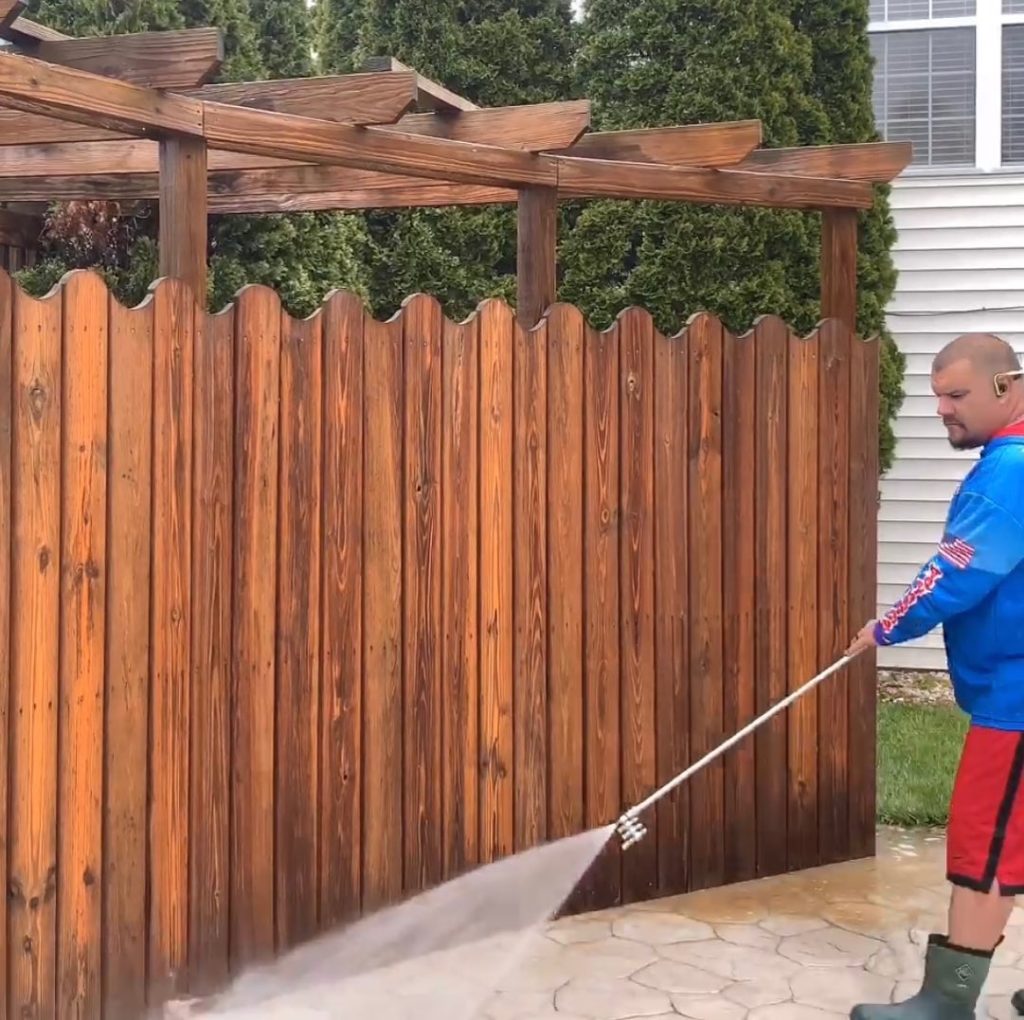
The Pros and Cons of Soft Washing
Because the water doesn’t come blasting out with as much pressure, soft washing is not as effective on stains and grime that are deeply embedded in the surface. It is also usually a slower process. That being said, the process uses a cocktail of chemicals that give a thorough clean. The exact mixture depends on who is performing the wash, but it usually includes the same kinds of elements:
- Bleach—Bleach has powerful disinfecting properties, and it is effective at killing most kinds of bacterial growth and mold.
- Surfactants—Surfactants decrease the surface tension between liquids. Adding them to a soft wash solution allows them to spread readily and penetrate gunk and grime.
- Neutralizers—Neutralizers serve to create a protective coating when they are used. They are included in cleaning solutions to make the mixture less harmful for plants and the surfaces being cleaned.
- Deodorizers—Many soft washing solutions include compounds to nullify odors.
Even with lower pressures, soft washing as a technique is still effective at cleaning surfaces that are not stained. It provides lasting results for surfaces that would not ordinarily be able to be pressure-washed. The process makes thorough and timely roof cleaning possible and is a great option for other delicate structures and surfaces that would be destroyed at high pressures.
Pressure washing is also more easy to manage than regular pressure washing. Because pressure settings fall under a lower range, the pressure washer is overall easier to handle, and the business end, while still powerful, is not quite as dangerous. This means that soft washes result in fewer injuries.
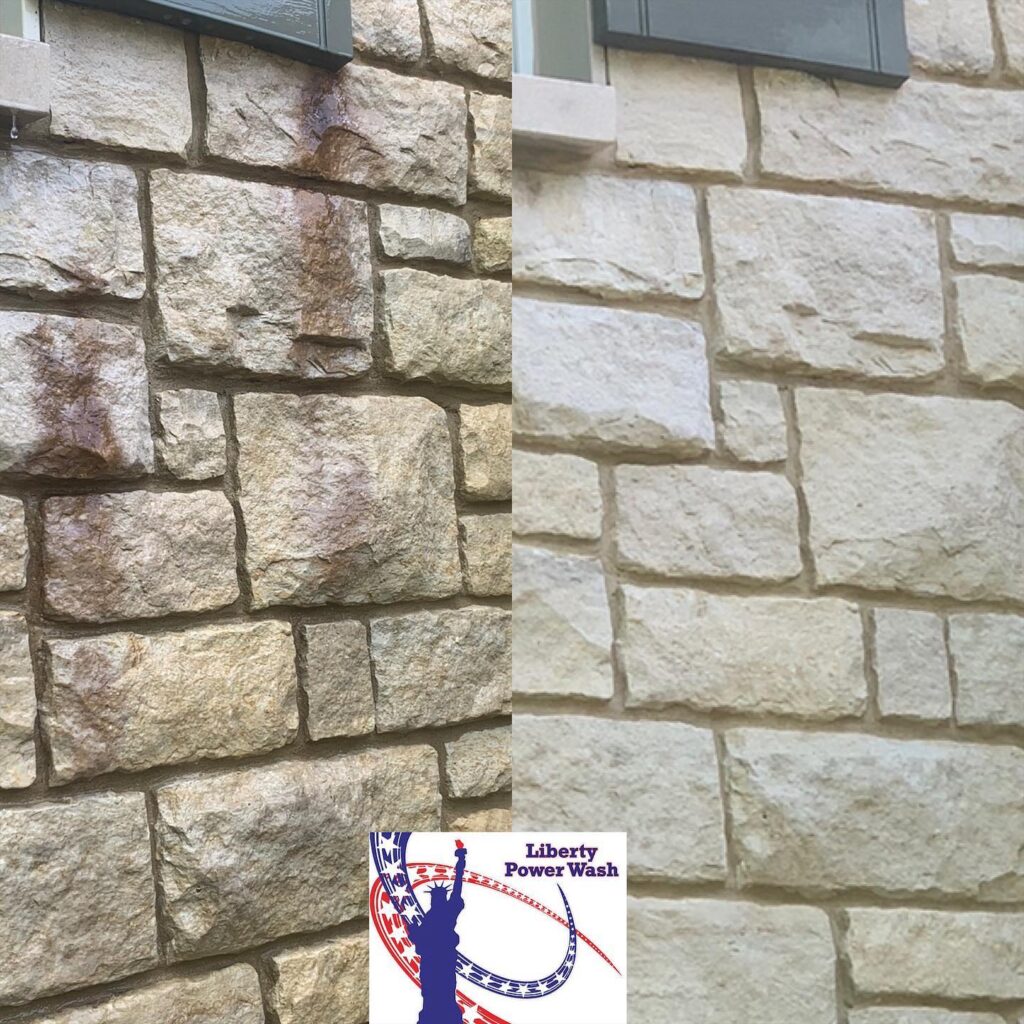
Professional Pressure Washing Services
Pressure washing and soft washing both have their proper time and place. Both are good at checking bacterial and mold growth and for giving a good clean. Both methods are also available to be done by a confident DIYer, but the wrong pressure settings can have dramatic dividends. If you are unsure which method your cleaning project needs, or if you want a professional hand to manage all the finite details and provide the perfect clean, give us a call at Liberty Power Wash today.
